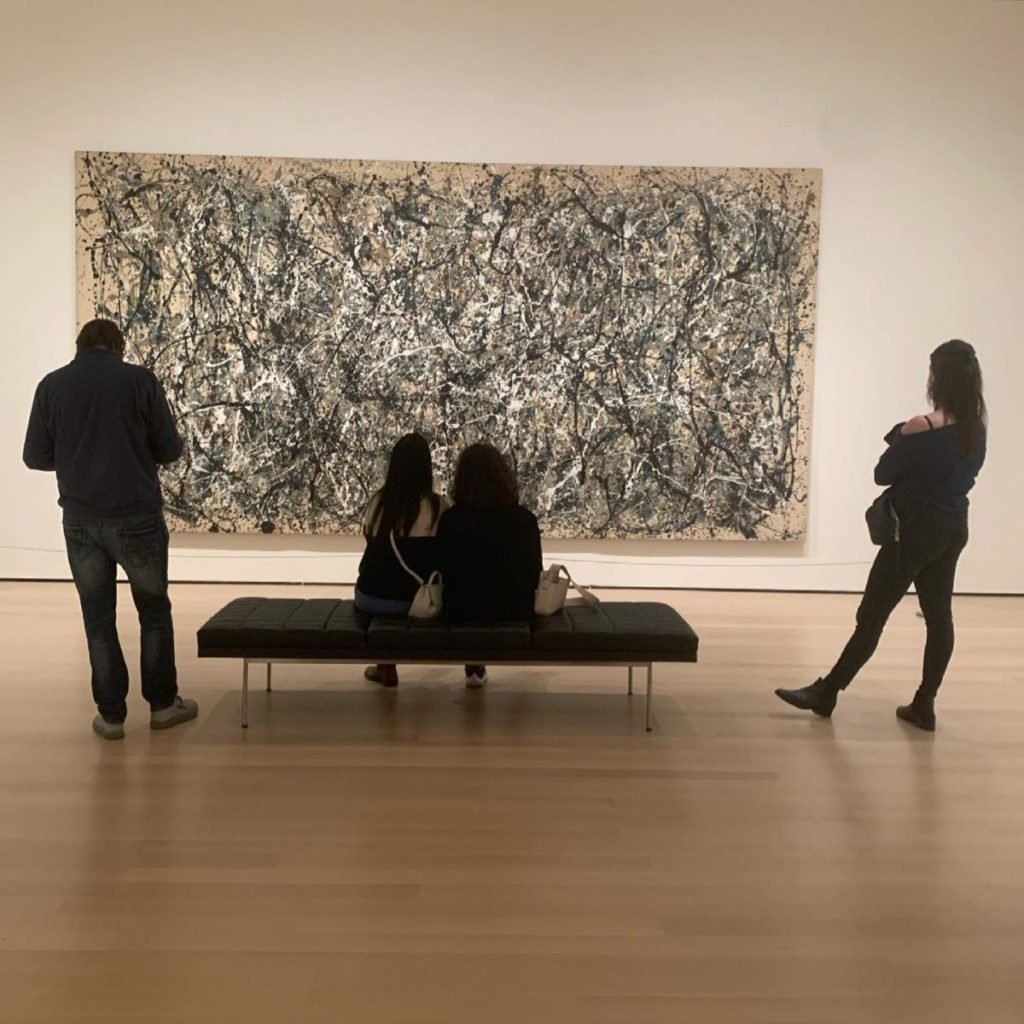On the one-year anniversary of the Covid lockdown, my husband and I decided to visit the recently-reopened Museum of Modern Art (while double-masked and socially-distanced) in midtown Manhattan, and have dinner afterwards in a private outdoor hut in the West Village. When I had my temperature check before entering the MOMA yesterday, the attendant made eye contact with me and said—you have beautiful eyes and I love your glasses. We looked at each other for a few more seconds, and I said thank you and his eyes crinkled above his mask. We really saw each other for a moment, and I’m not sure that’s been happening to too many people for the better part of a year. I’m not ashamed to say that I’ll take a compliment any day, and that I’m a woman who harmlessly flirts and still wants to be seen—but something else happened there in the span of six feet. Something that I’ve been missing for a year. Something we’ve all been craving and missing. Something human and tender and lovely. Thank you, MOMA dude. I didn’t know how much I needed to be seen yesterday. Maybe you tell all the MOMA visitors that they have beautiful eyes and you love their glasses, but in the midst of a pandemic, you made me feel like the only girl in the whole museum.

Covid has harmed me—us—in a myriad of ways, and there are some aspects of that fact which we have yet to recognize. It hurt so much to still feel so gun-shy about New York, a place that I once felt most at home in. I was born in Manhattan and grew up in Queens in the seventies and early eighties. For the better part of thirty years, nothing fazed me about the city. I could navigate it, maneuver in it, make sense of it. I belonged to it. Yet, 9/11 initiated a process of undoing and untethering for me. That era unleashed a profound uneasiness, and a pervasive vulnerability. Someone might say that it was also the repressed anxiety of my seventies-era childhood pushing through the cracks and challenging the breaches. They wouldn’t be wrong. I thought I’d gotten past all of that, but the pandemic has set me squarely back into that uneasiness. I once understood the rhythm of New York like my own heartbeat, my own breath. Now, I feel so out of place when I’m there. I want to go home. I no longer can. It’s a strange place to be.
While viewing one of Jackson Pollock’s paintings at the MOMA, Number 1A, 1948, I noticed several of the artist’s handprints at the upper right of the canvas. It moved me so deeply to see the phantom image of his presence, his physical being, his spirit, his effort at immortality, his belief that art and life were one. We all want to be seen, to be known, to be remembered. We all want to be.

Share this post with your friends.


This is gorgeous. Thank you for sharing.